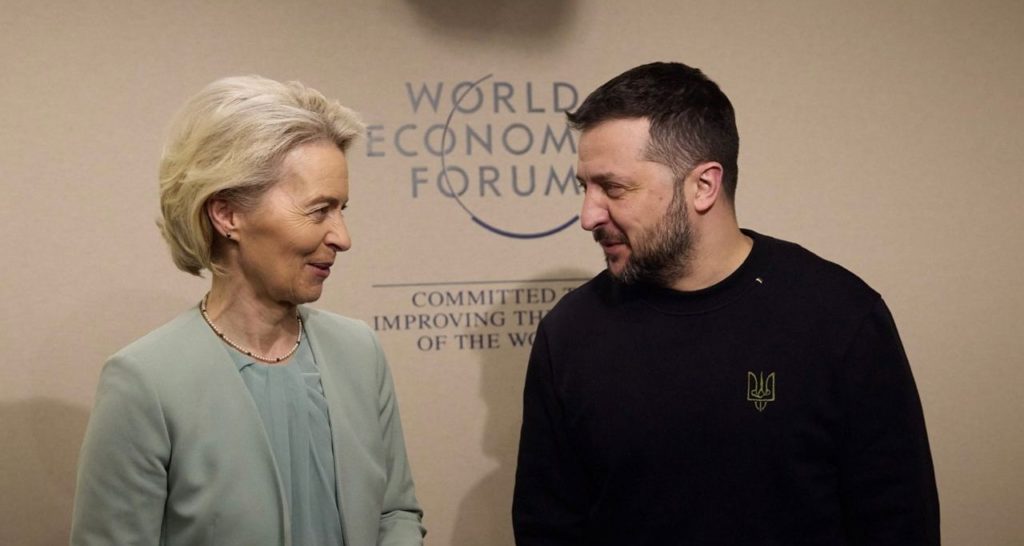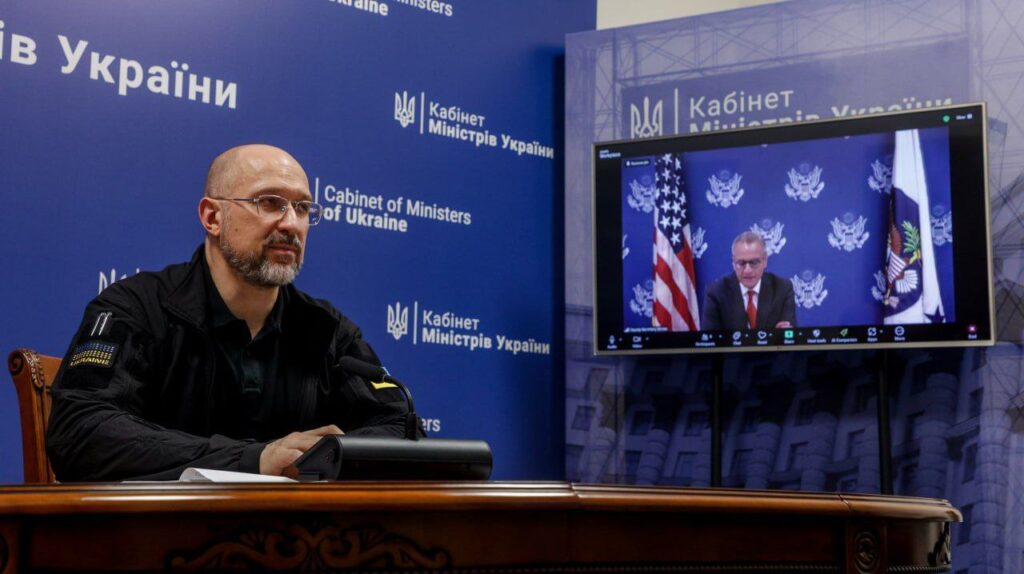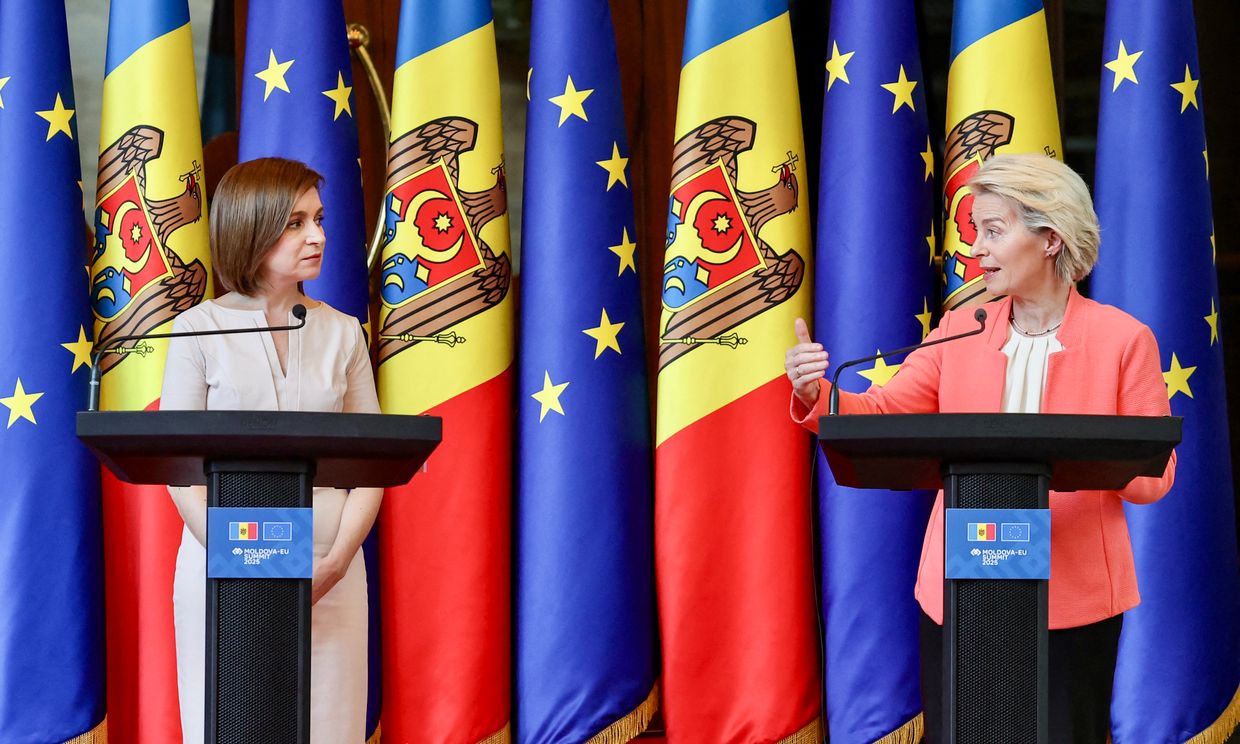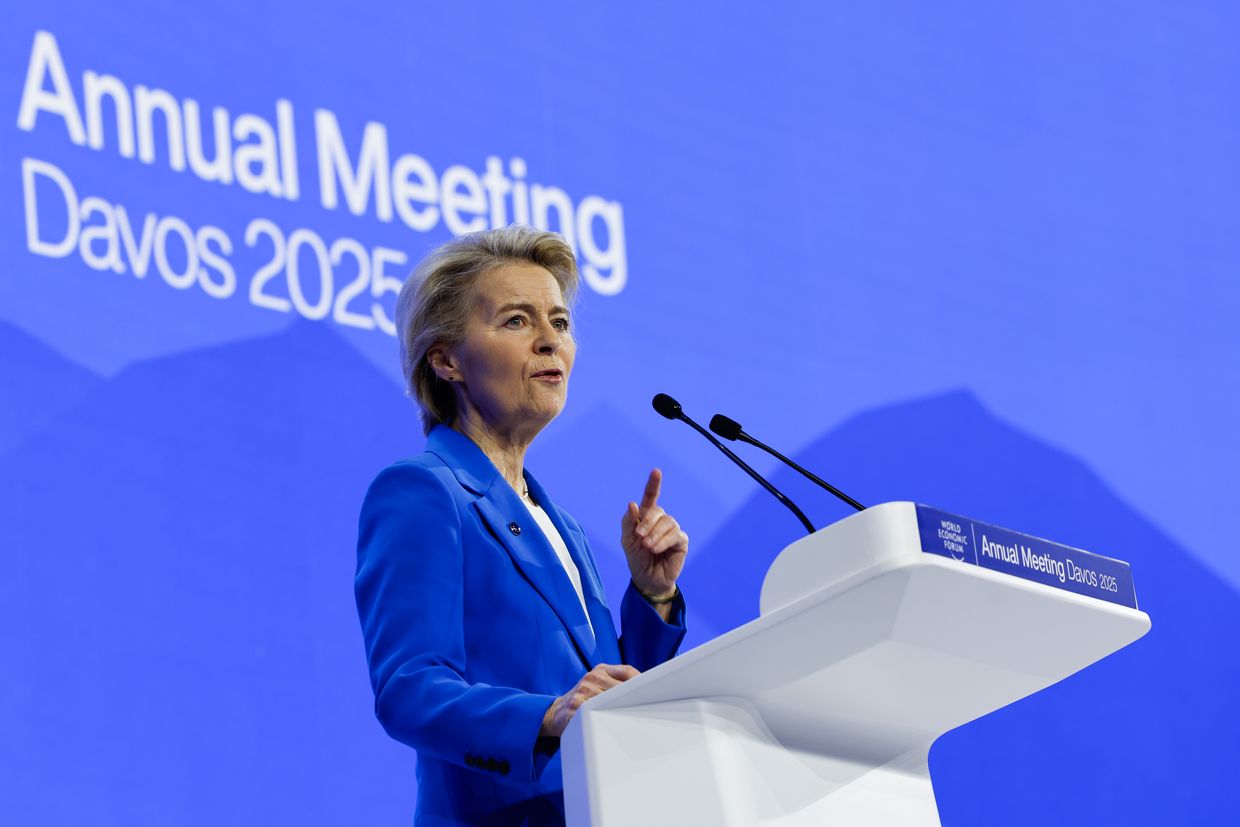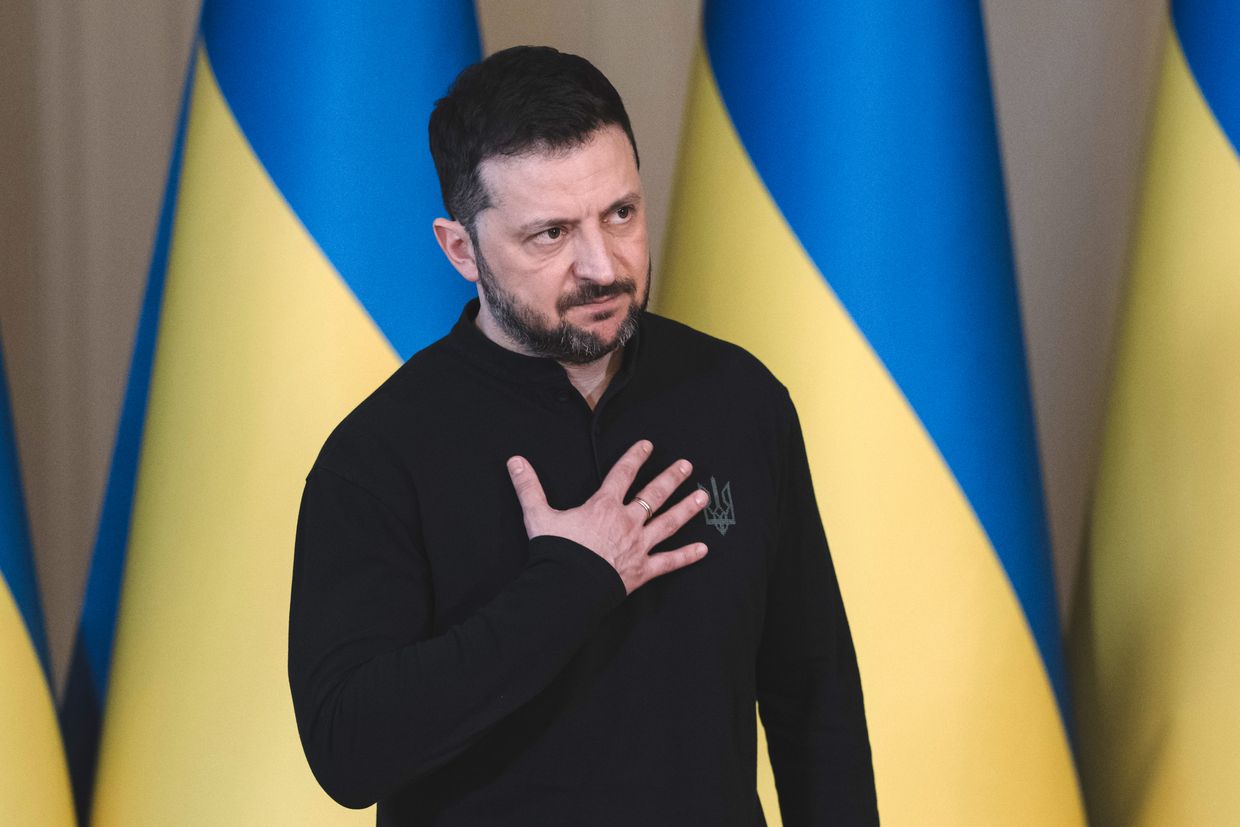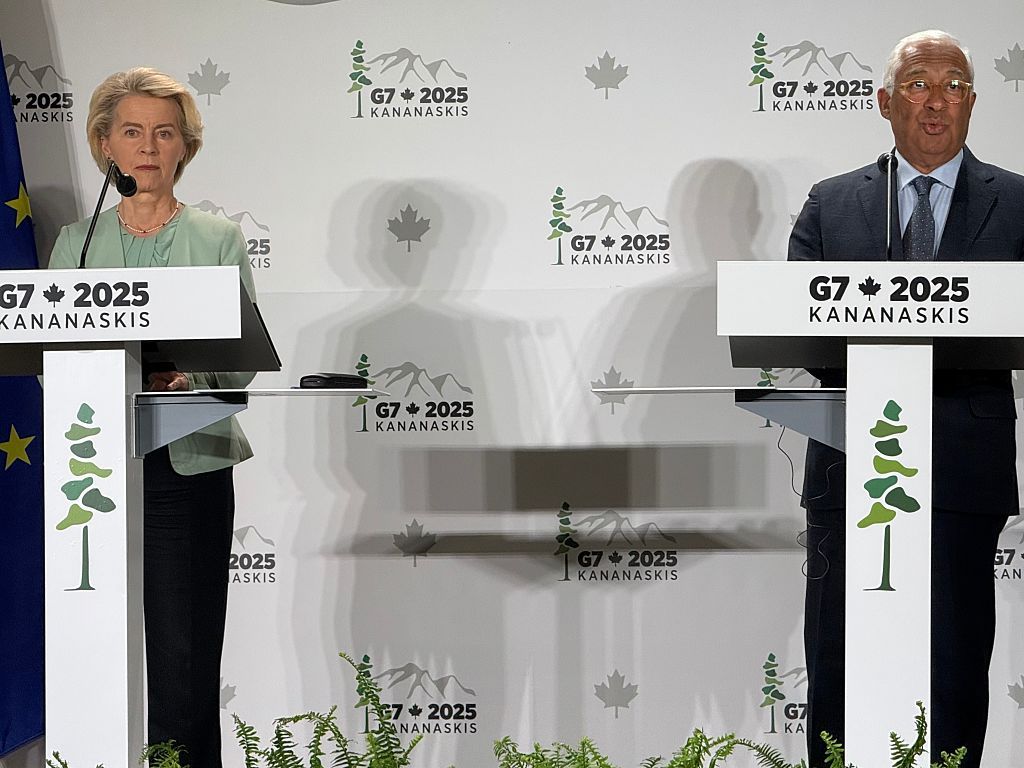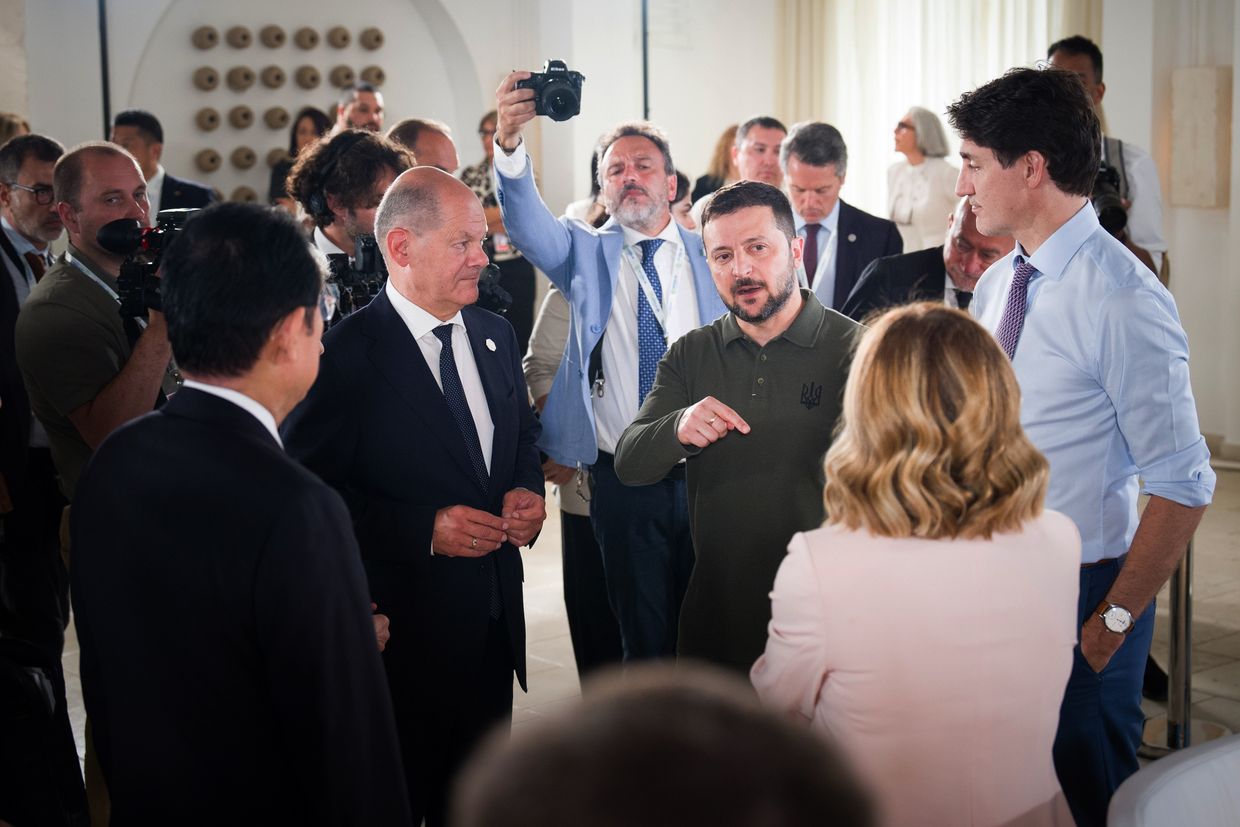Zelenskyy dismisses “fake” reports of Ursula von der Leyen call over anti-corruption law
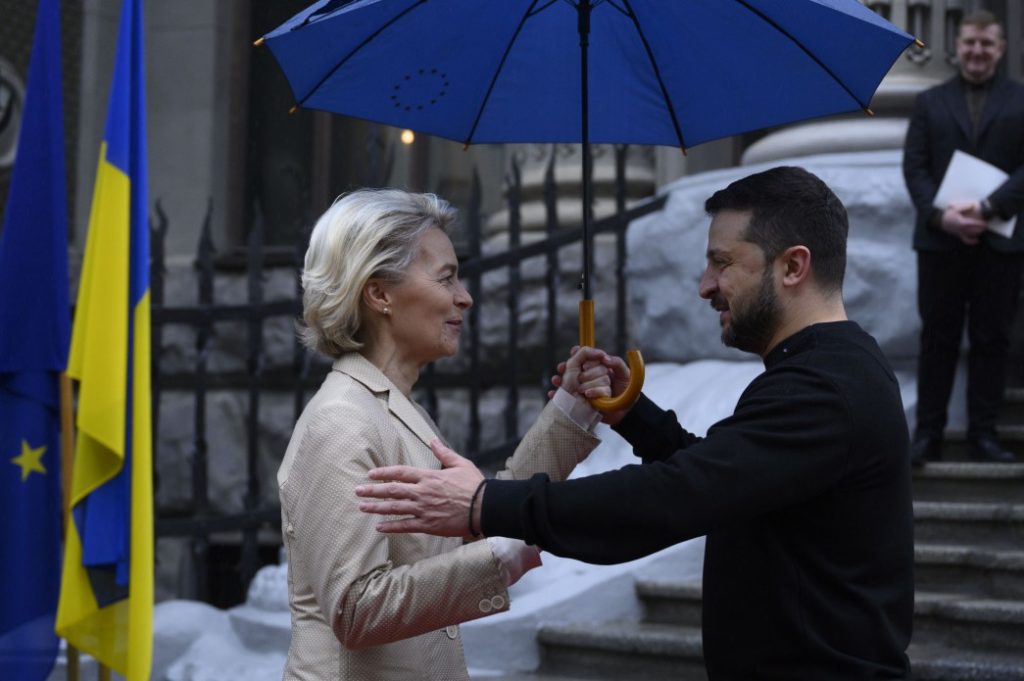
Ukrainian President Volodymyr Zelenskyy rejected media reports about his conversation with European Commission President Ursula von der Leyen regarding a law that limits the independence of anti-corruption agencies.
“I have not spoken with Ursula von der Leyen in recent days. Everything that was written about this, everything she supposedly told me, is fake. We did not have a conversation,” Zelenskyy announced during a meeting with journalists attended by Hromadske.
On 23 July, multiple media outlets cited European Commission spokesperson Guillaume Mercier, reporting that von der Leyen expressed concern to Zelenskyy about signing legislation that restricts the independence of the National Anti-Corruption Bureau (NABU) and the Specialized Anti-Corruption Prosecutor’s Office (SAPO). According to the spokesperson, the European Commission was “very concerned” about the law’s adoption.
The controversy stems from Zelenskyy’s decision on the evening of 22 July to sign legislation limiting NABU and SAPO’s independence. MP Anastasiia Radina said amendments were added that “make SAPO a decorative institution and provide for complete subordination of NABU and SAPO activities to the will of the prosecutor general.”
The presidential decision triggered mass protests in Kyiv and other Ukrainian cities. Demonstrators chanted “Veto the law,” “Return Europe,” and “Shame.”
In response to the backlash, Zelenskyy, together with law enforcement agencies, has already prepared and submitted a new bill on “strengthening the independence of anti-corruption agencies.”
The legislative changes followed extensive searches of NABU and SAPO employees. The Security Service of Ukraine (SBU) and the Office of the Prosecutor General announced they had uncovered Russian influence on NABU. Individual Bureau employees face charges including treason, illegal trade with Russia, and corrupt actions in the interests of oligarchs.
Zelenskyy maintains that “criminal proceedings should not last for years without legal verdicts,” apparently referring to accusations of NABU’s “ineffective work.” SBU chief Vasyl Maliuk said that the anti-corruption bureau “needs to be cleansed of Russian intelligence influence.”
NABU emphasizes that even if individual employees’ guilt is proven, this does not justify eliminating the independence of anti-corruption agencies.
The NABU and SAPO developments have drawn attention from Ukraine’s international partners. Over recent days, several politicians have appealed to Zelenskyy and Ukrainian authorities with public calls or personal communications, emphasizing the need to preserve anti-corruption institutions.
